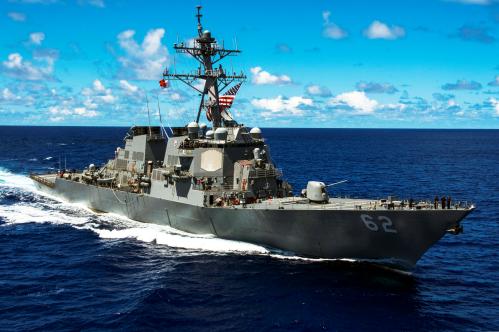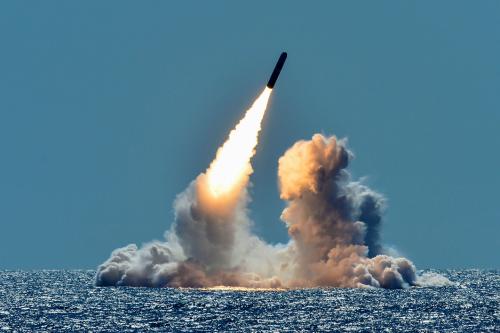On Monday, March 12, Shibley Telhami, Anwar Sadat Professor for Peace and Development at the University of Maryland and nonresident senior fellow at the Saban Center for Middle East Policy at Brookings, released a poll on American views on Israel and the Iranian Nuclear Program. The poll surveyed 727 Americans, assessing opinions on Israel, Iran and nuclear nonproliferation.
Key Findings:
Israel
- Only one in four Americans favor Israel conducting a military strike against Iran’s nuclear program. Seven in ten favor instead the United States and other major powers continuing to pursue negotiations with Iran. Three in four say that the United States should primarily act through the UN Security Council rather than acting by itself.
- Only one in seven Americans thinks the United States should encourage Israel to strike Iran’s program, but views are mixed as to whether the United States should openly discourage Israel or stay neutral.
- If Israel goes ahead with a military strike against Iran’s nuclear program and Iran retaliates (but not against American targets), only one in four favors the United States providing military support for Israel and only 4 in 10 favor the United States providing even diplomatic support. Few would support open opposition. The most popular position is for the United States to take a neutral stance. If Israel strikes Iran even without American approval one in three Americans think the United States would provide military support and a slight majority thinks that it would at least provide diplomatic support.
- Americans think that a military strike against Iran’s nuclear program is not likely to produce much benefit or to be low in cost. Only one in five believe that a military strike will delay Iran’s abilities to acquire nuclear weapon for more than five years. Less than half believe that a strike would weaken the Iranian government. Also, few Americans believe that a strike will involve a short exchange: a large majority believes that a strike would lead to at least months of military conflict between Iran and Israel, and half believe that it would go on for years.
- Respondents who favor providing military or diplomatic support to Israel in the event of a strike are more optimistic that a strike will substantially delay Iran’s ability to acquire nuclear weapons and that the strike would not lead to a drawn out military conflict between Iran and Israel, though even they were not optimistic that the conflict would be short.
Iran
- Americans show substantial pessimism about Iran and its nuclear program. Six in ten believe that Iran has decided to try to produce nuclear weapons and is actively working to do so. Nine in ten believe that it is likely that Iran will eventually develop nuclear weapons.
- If Iran were to develop nuclear weapons six in ten believe that it is more likely that Iran would use them against Israel rather than that they would be deterred by the likelihood of retaliation. The largest concern is that Iran would either use nuclear weapons or that it would make Iran more aggressive, less that it would engender a nuclear arms race in the region.



